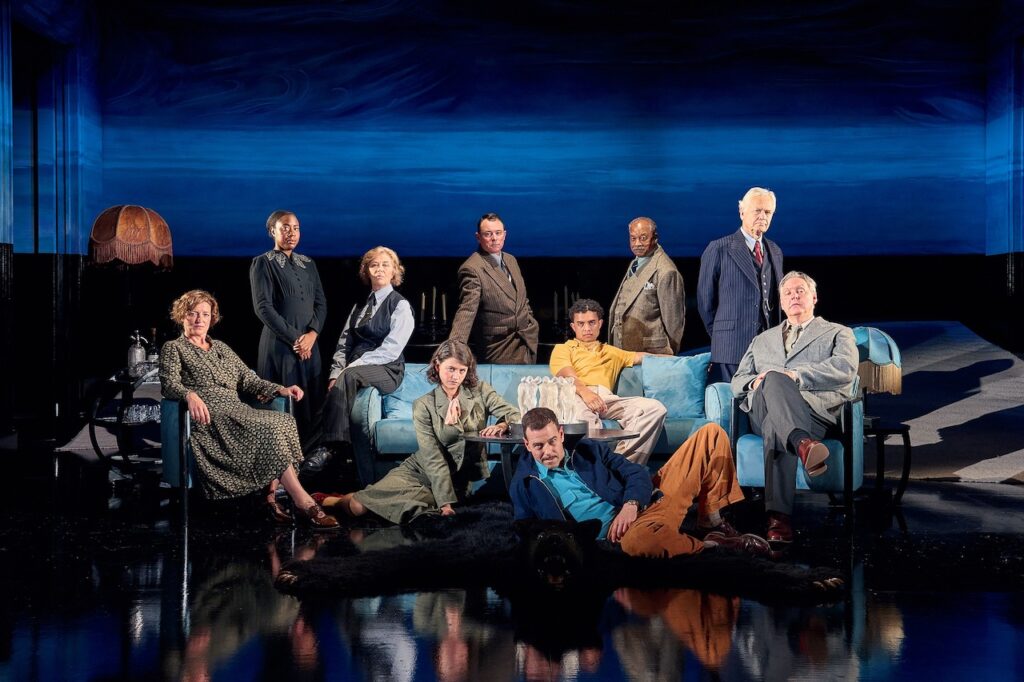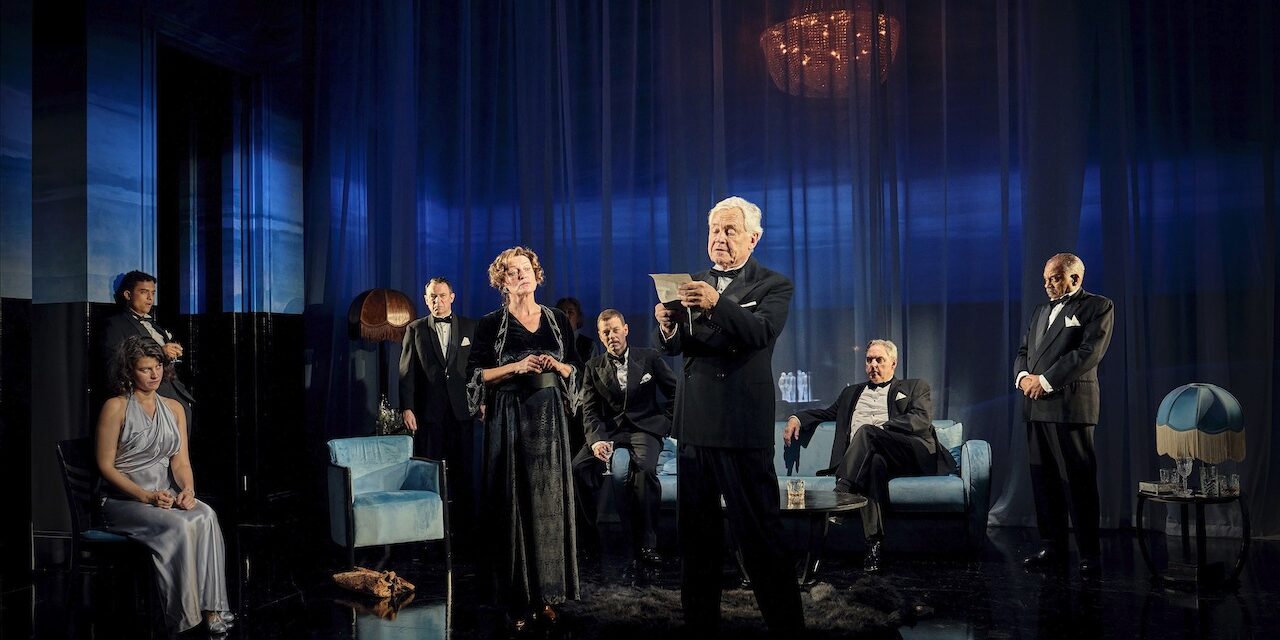
20 – 24 February
‘What if something happens? We have no telephone!’ It is 1939, and ten people, all with a murky past, find themselves invited to a tiny island off the coast of Devon. Their host is mysteriously absent, and they hear a recorded message that causes them serious concern for their safety. Then one of them is murdered…
Some of the pleasure that may be derived from watching one of Agatha Christie’s murder mysteries is obviously rooted in nostalgia. She takes us back to a simpler time, one with no mobile phones, and one of shared beliefs and clear-cut social boundaries. A time too of instantly recognisable characters, such as disgruntled servants, flighty young things falling for cads in sports cars, and choleric old generals reminiscing about the Great War. But a tale which seems cosily nostalgic to some may be judged well past its sell-by date by others. Back in 1962 Tom Stoppard’s one-act comedy The Real Inspector Hound was already making fun of the Christie genre, and more than sixty years later there is very definitely much in her writing that creaks with dusty old age. Yet on the stage, on TV and in the cinema the revivals keep coming. This continued popularity cannot be explained merely by a hankering after a long-lost age. Her stories survive almost entirely because of the cleverness of her plotting. She is, after all, ‘the Queen of Whodunnits.’
And Then There Were None is a case in point. It is certainly dated. There is much in the original that is now deemed socially unacceptable, and the original racist title is simply unprintable. The set-up on that little rocky island is somewhat far-fetched, and many of the characters are mere sketched-in stereotypes. But such is the cleverness of the plot, as the body count increases so should our desire to work out the identity of the murderer. Does this new version of And Then There Were None, directed by Lucy Bailey, succeed in sustaining that necessary level of interest? Not entirely. Though this production does have some very real strengths, there are also very real weaknesses. The first half particularly suffers from unconvincing, almost cartoonish performances in some roles. This contributes to an uncertainty of tone, leading to little or no dramatic tension in a situation where there should be an inexorable sense of rising panic.
Matters improve considerably in the second half. Mike Britton’s set vividly conveys social disintegration, with its magnificent chandelier now lying smashed to the ground. The cast, too, now succeed in creating a mood of increasing desperation. David Yelland is impressively sombre as Judge Wargrave, and Sophie Walter excels as Vera Claythorne, powerfully conveying that character’s moral complexity. Vera is perhaps the only character with whom we can identify in this unremittingly dark tale. And Then There Were None has no Hercule Poirot or other crime-solving hero, and if we take this improbable tale seriously, it would seem to have been written by an author with a very bleak view of humanity. Perhaps that publication date of 1939 is significant.
This production certainly ends on a very grim note indeed, with a lengthy and very graphic depiction of a horrible death. This scene is undeniably very powerful, but perhaps jarringly too real in a story that so often stretches credibility to the limit, and beyond. Agatha Christie’s stories are surely best seen as entertaining puzzles, not as disquisitions on the terrible realities of crime and punishment. However, despite such reservations, there is little doubt that Christie aficionados will find much to enjoy in this show.
★★★☆☆ Mike Whitton, 21 February 2024
Photo credit: Manuel Harlan


